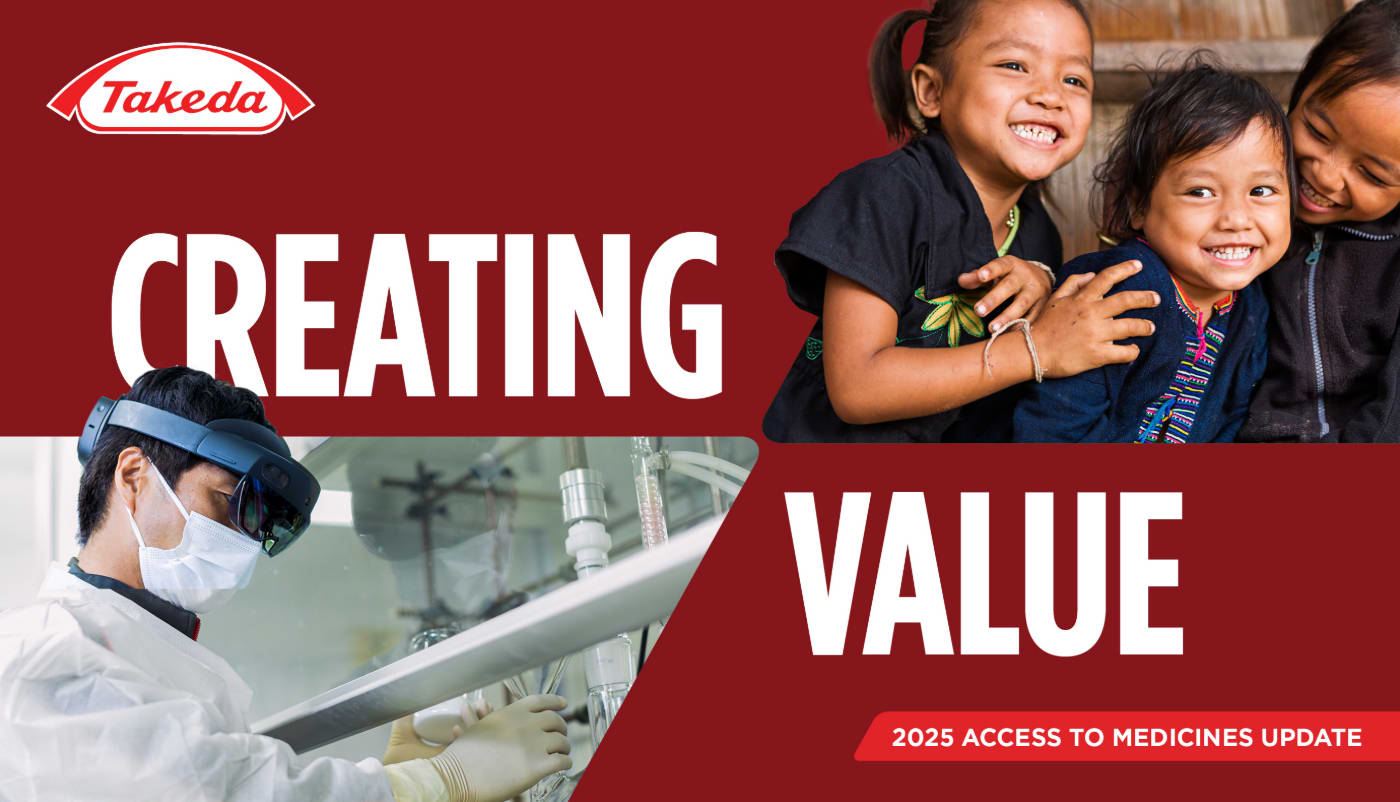Access to Medicines - Our Approach | Takeda Pharmaceuticals

Access to Medicines
Globally, more than 2 billion people lack access to essential medicines, most of whom live in low- and middle-income countries (LMICs) and countries with evolving healthcare systems.
We are focused on improving people’s lives by researching, developing and bringing to market innovative medicines and vaccines that everyone can access – regardless of where they live or their ability to pay.
We do this not only by ensuring our medicines and vaccines are available and affordable, but also by working in partnership to build capabilities within the health care systems that deliver them.
Broadening sustainable, equitable access to medicines and vaccines is not only embedded in our values, it’s integrated in to our purpose-led sustainability strategy for business growth.
Broadening sustainable, equitable access
Our programs are aimed at broadening sustainable and equitable access to medicines. To do this, we pursue an “end-to-end” approach that unlocks barriers to access across the patient pathway.
The three pillars of our approach
Building sustainable, equitable access to medicines and vaccines requires thinking long-term. It’s not just about making the medicine available but accessible to eligible patients. This means understanding and partnering to address the specific barriers to access that exist within the health care system.
In doing so we committed to strengthening healthcare systems in ways that are sustainable, aligned with national priorities and in collaboration with local communities.
For many living in LMICs and countries with evolving health care systems, out-of-pocket expenses are often so high that lifesaving medicines are out of reach.
While public reimbursement schemes are the most equitable and sustainable way to address population affordability challenges, these schemes can take time to mature.
We are playing a role to bridge the affordability of our innovative medicines and vaccines through tiered pricing, which aims to address population-based affordability barriers, affordability-based Patient Assistance Programs, which provide financial assistance based on individual circumstances, as well as value-based pricing advocacy, which aspires for new ways to create value within the system.
As a company we are focused on improving people’s lives by researching, developing, and bringing to market new and better medicines and vaccines that address the unmet needs of patients. We are also committed to playing our role in ensuring that these medicines can be accessed by eligible patients across the world in a way that is both equitable and sustainable.
This is why our approach to access to medicines is integrated into our company strategy and business planning processes, and why we set access related KPIs to measure impact and progress.
Our holistic and integrated approach to planning begins from Phase II in the product development process and includes access planning for low- and middle-income countries and countries with evolving health care systems.
As part of our integrated approach, we also consult with a diverse set of stakeholders, including local community organizations, patient organizations, policy makers, shareholders and investors, whom inform our strategy.

Access to Medicines Update
““We’re committed to discovering and delivering life-transforming medicines and vaccines to patients regardless of where they live or what they can afford to pay.”
